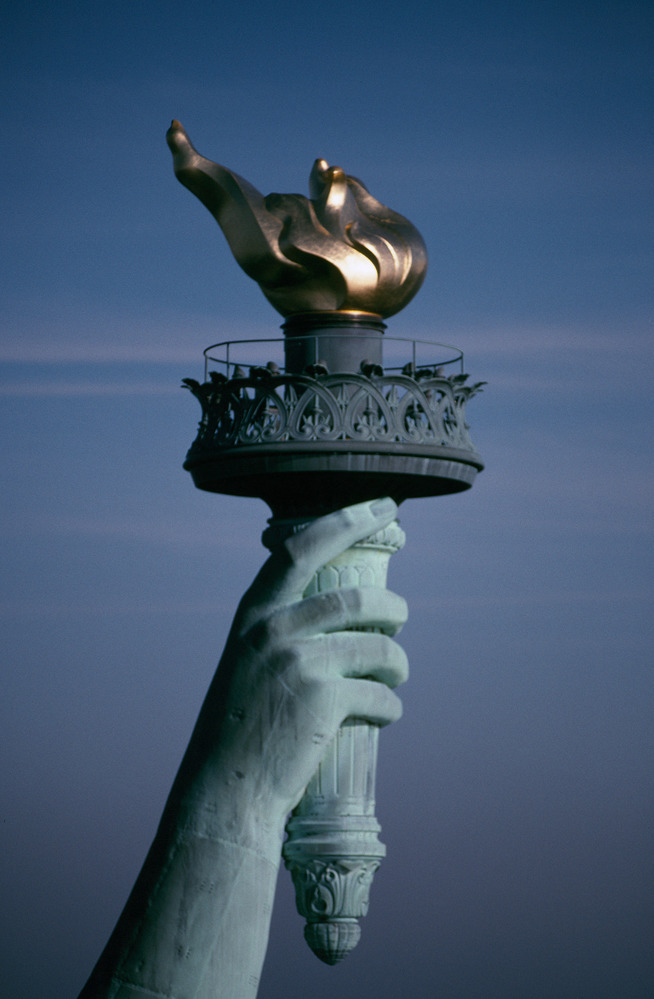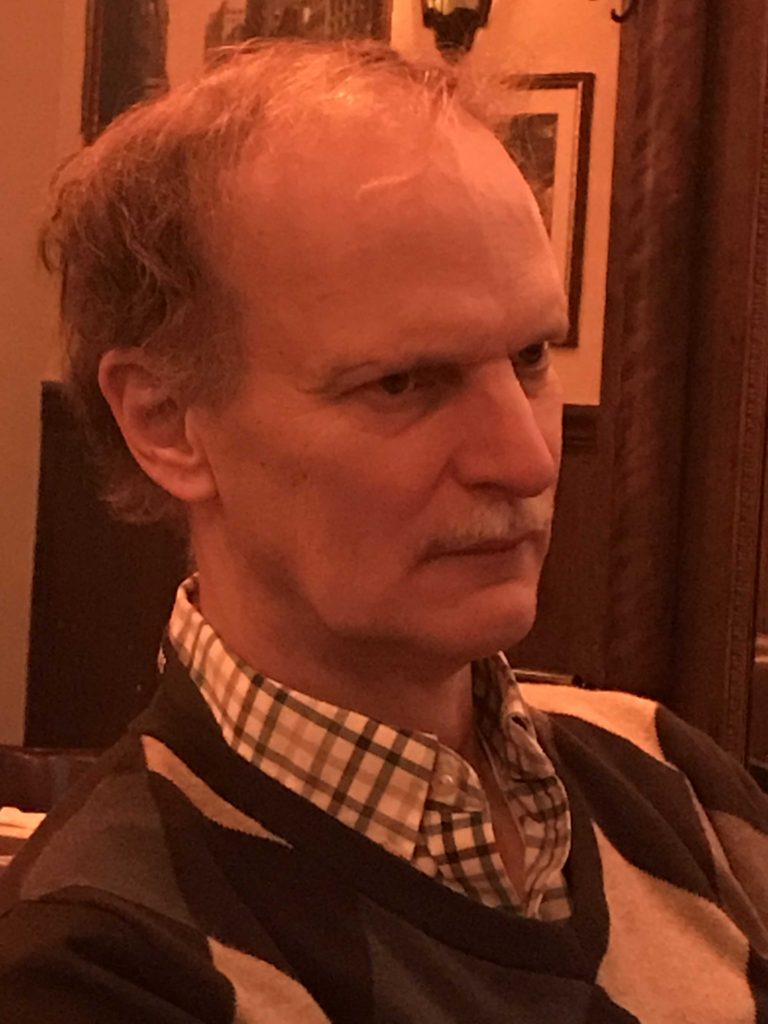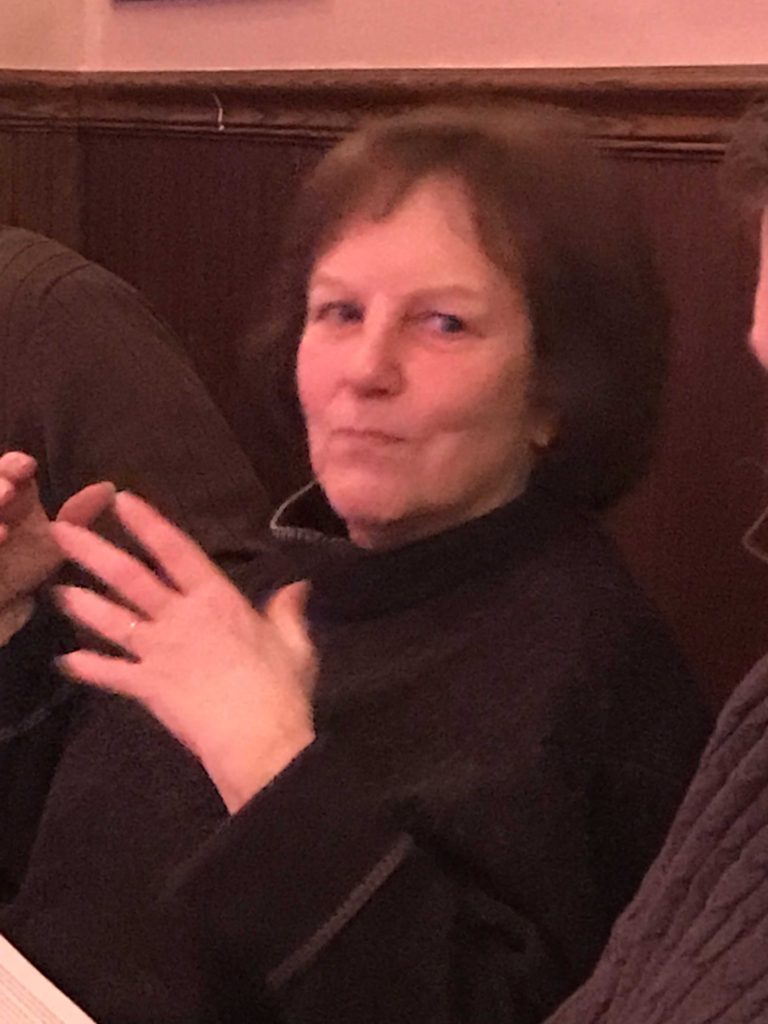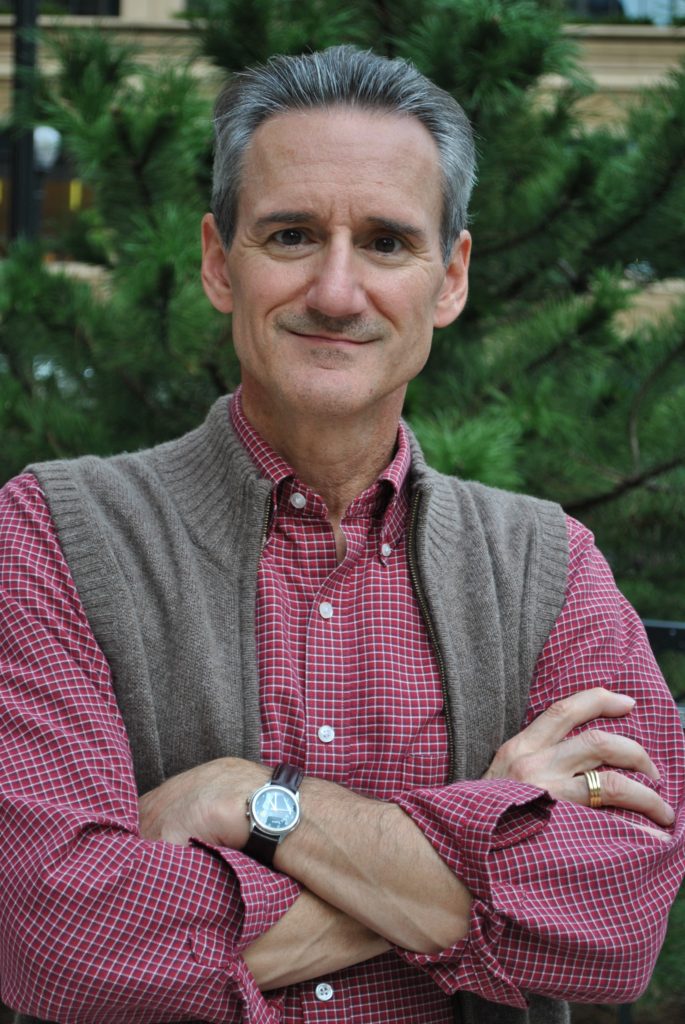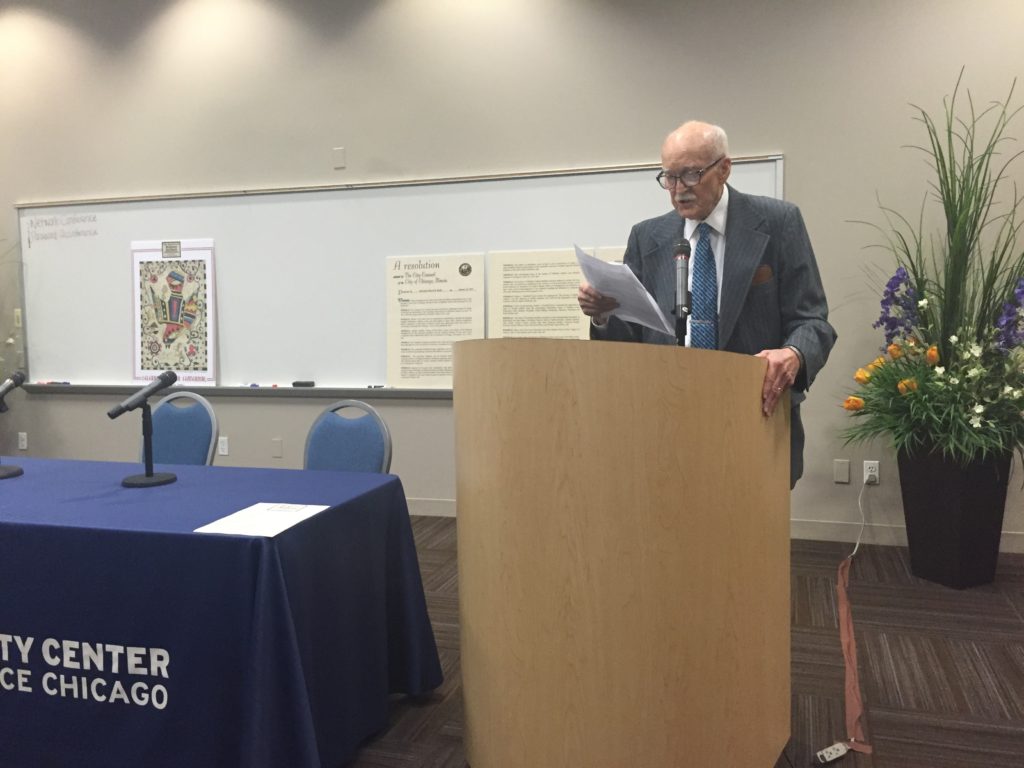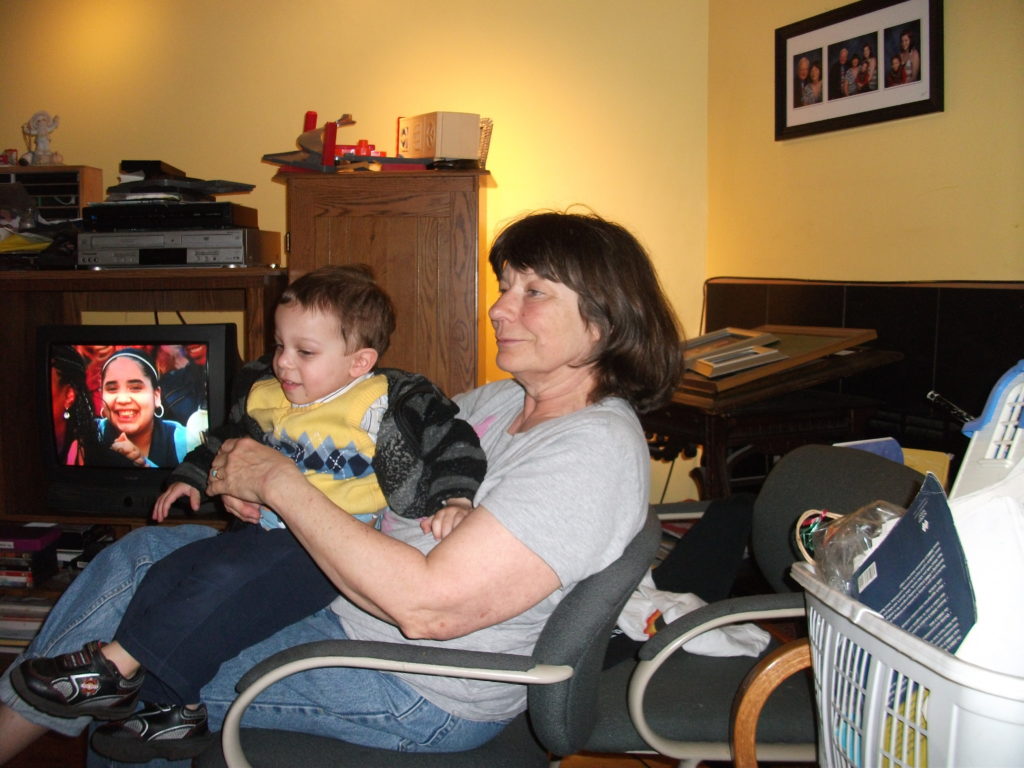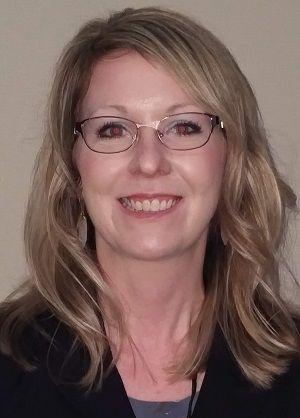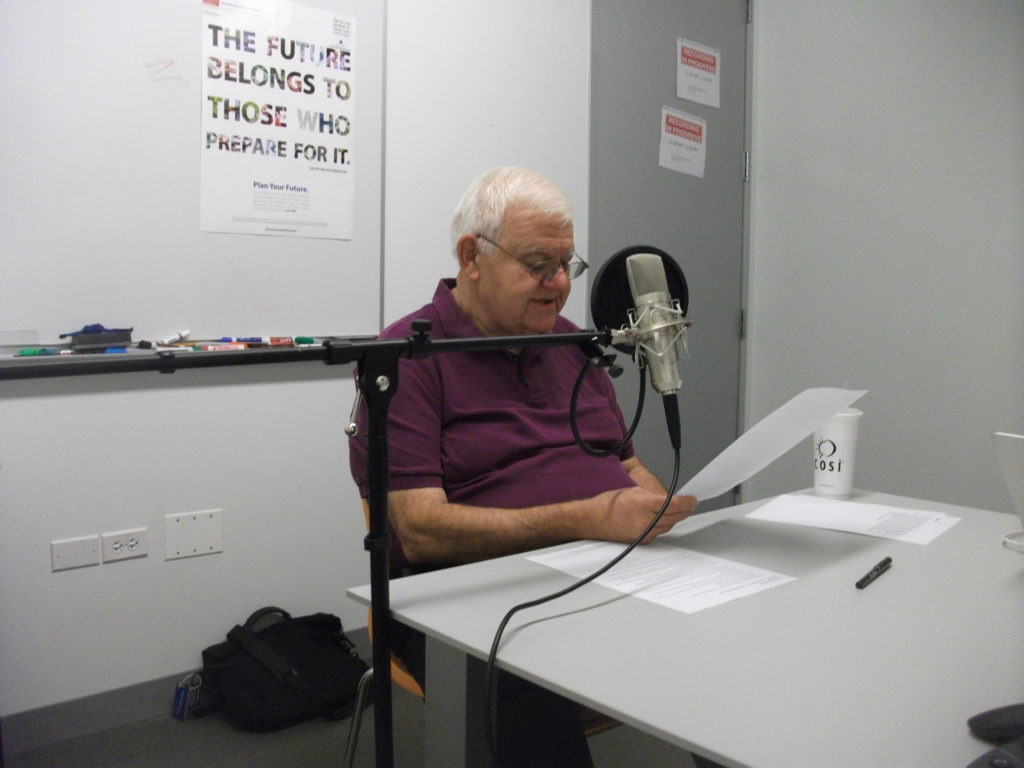Last week was for me an eventful time, including a four-hour trip to Dubuque, Iowa, on Thursday for the Growing Sustainable Communities conference, an event the city sponsors every year. I spoke in a session that afternoon, October 24, on community planning for drought, but mostly what I remember was the combination of keynote speeches that addressed the major issues of our time, notably including a luncheon talk on Friday by Dr. Katherine Hayhoe, of Texas Tech University, on communication about climate change. It was impressive and inspiring but underscored how much work lies ahead to reverse damaging trends affecting our planet.
But the week started out differently, with smaller actions that I think are extremely important in setting the tone for the way all of us relate to our fellow human beings.
My wife and I are members of Augustana Lutheran Church of Hyde Park, in Chicago. Situated catacorner from the Lutheran School of Theology in Chicago on E. 55 St., our church enjoys the benefit of the knowledge that abounds among the LSTC faculty. I serve as coordinator of the Adult Forum, an adult discussion group that meets during the Sunday School hour. That makes me responsible for finding speakers, programming discussions, and promoting the events. On Sunday, October 20, we discussed actions we could take following a five-week series covering the World War II Nazi death camps, visited by Dr. Esther Menn and her husband, Bruce Tammen, in August during a trip to Poland and Ukraine, which fed into considerations of how we treat immigrants and minorities in our own time.
Our pastor, Rev. Nancy Goede, told me about an incident that occurred the prior Tuesday in Chicago’s Pilsen neighborhood, at Lincoln United Methodist Church. Lincoln has chosen to become a sanctuary church out of concern for the safety of undocumented immigrants, but a man shouting Nazi slogans came to the building in an angry confrontation with church staff. It was not the first time the church had been targeted for its actions. The man proceeded to smash the front window.
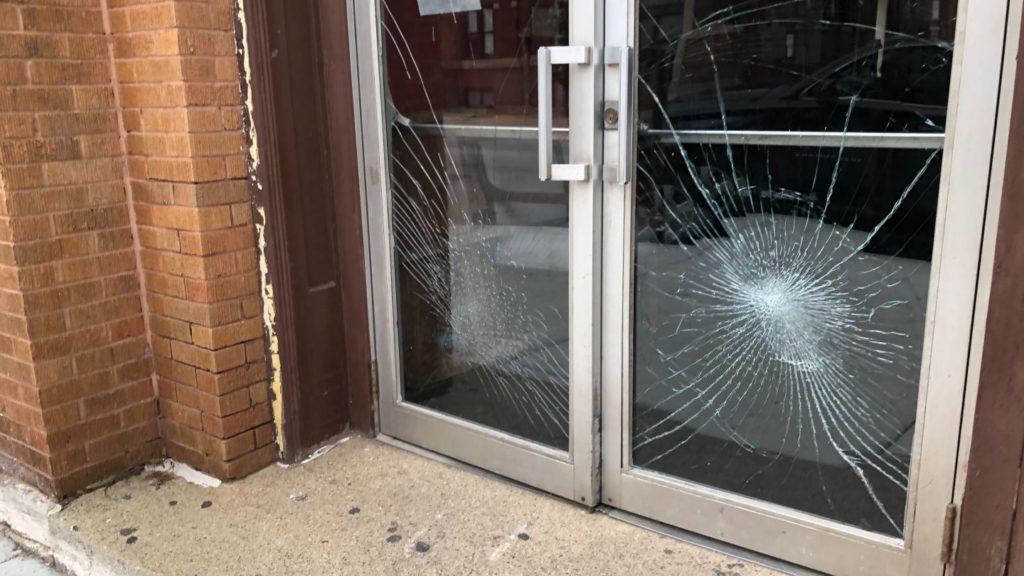
There is little we can do directly about an incident that is already past, but we decided that we could establish a supportive relationship with the congregation in the face of this hate crime, so we composed the following letter, eventually signed that day by at least 25 members of Augustana:
To the Members and Staff of Lincoln United Methodist Church:
We are very sorry to hear about the incident on October 15, in which a man shouting Nazi slogans smashed the glass window on the front door of Lincoln United Methodist Church. We have learned that you have been targeted by right-wing groups for your stance in establishing Lincoln UMC as a sanctuary church. We support your efforts and pray for your safety as you continue to follow your consciences in doing the Lord’s work.
Your Brothers and Sisters in Christ at Augustana Lutheran Church
Indeed, part of the purpose of this letter is to reassure Lincoln United Methodist Church that its members are not being left to handle this attack in isolation from the rest of the Christian community. We had learned a great deal about the high cost of silence during the Holocaust, as well as the need to forcefully address racial equality as we commemorated the 100th anniversary of Chicago’s race riots in 1919, a story detailed well in Claire Hartfield’s recent book, A Few Red Drops.
But that is not all we chose to do. Esther Menn then noted the American Jewish community on this past weekend would be commemorating the first anniversary of a violent anti-Semitic attack at the Tree of Life synagogue in Pittsburgh, in which eleven members were killed, and seven others wounded, by a man apparently inspired by right-wing rhetoric. Robert Bowers, a truck driver from Baldwin, Pennsylvania, was arrested for the massacre, and authorities said he used social media beforehand to post criticism of the Hebrew Immigrant Aid Society, which has been supportive of the human rights of immigrants to the U.S.
In solidarity, Augustana announced that members of the congregation, as well as people from LSTC and McCormick Seminary, would gather last Friday evening to walk to nearby KAM Isaiah Israel congregation in Hyde Park to join its Friday evening shabbat service. Once again, Augustana would make a simple statement in opposition to hate crimes and violence against religious and ethnic minorities and immigrants. Because traffic on the way back from Dubuque that afternoon obviated the possibility of my own participation, Esther related to me that 27 people from Augustana and the two seminaries joined the effort, plus others who met them at the synagogue, and that their presence was greatly appreciated.
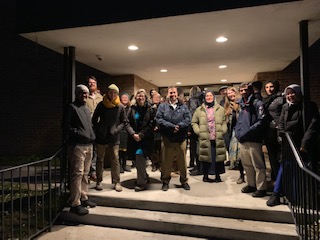
Sometimes, it is worth remembering that the simple act of reaching out to say we care and stand behind others is enough to establish lasting and meaningful bonds between otherwise disparate groups of human beings. It certainly is a place to start.
Jim Schwab

